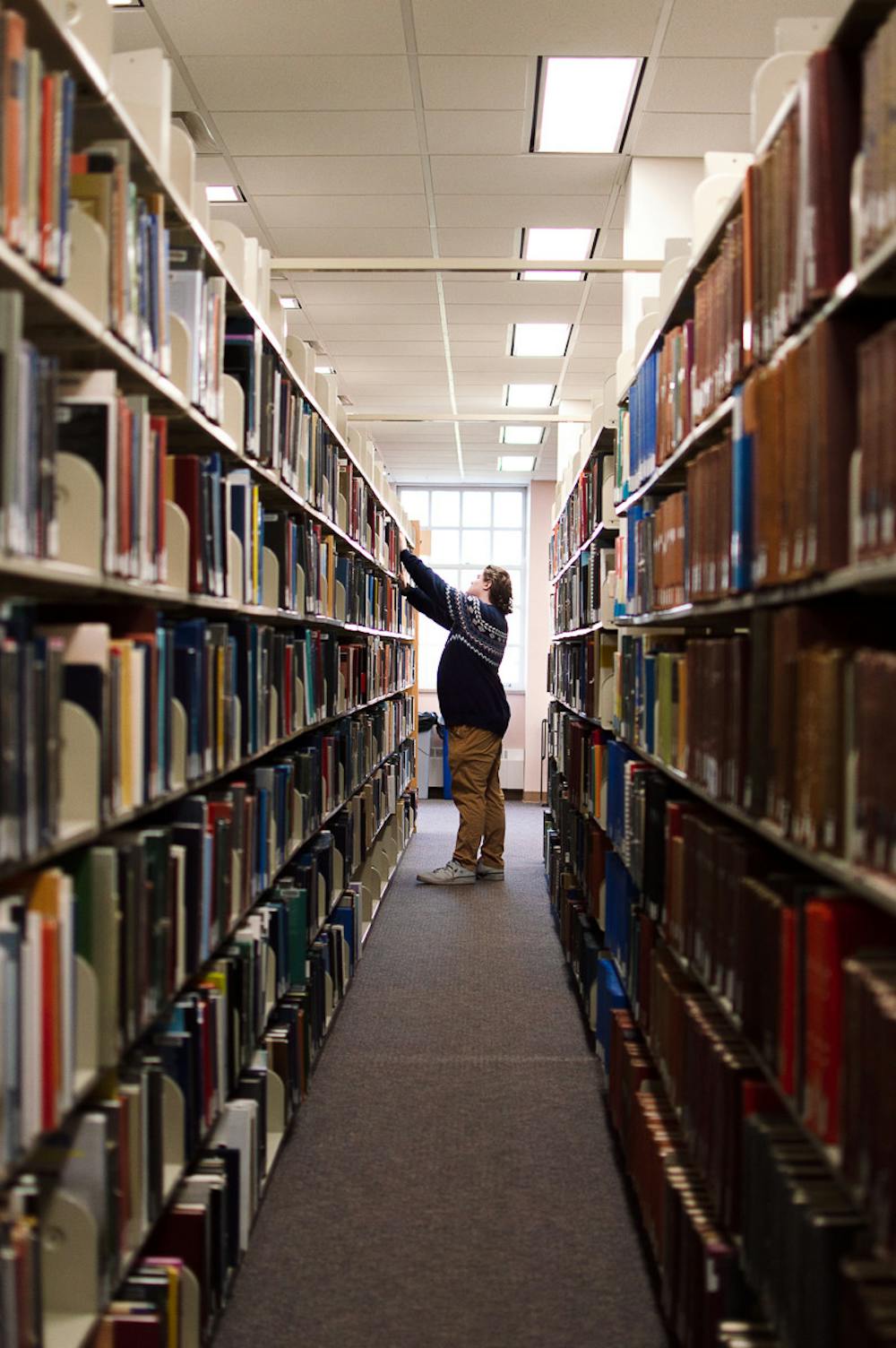On any given day, someone can wander into Miami University’s King Library to find students getting a snack at King Café, using the Makerspace on the third floor or resting before their next class. During midterms or finals week, it seems like every table has a student memorizing amino acids or writing a five-page paper.
But amid all this activity, there’s something always a bit harder to spot: students browsing the library’s shelves or checking out books.
According to a 2022 Gallup poll, the average amount of books an adult reads per year is lower than it has been since the poll started in 1990. Across the nation, people simply aren’t reading as much as they used to.
Tesh Bali is a first-year majoring in biology and premedical studies. While he has become involved with many leisure activities in college, reading isn’t one of them.
“I definitely could read for fun, but it’s never that high of a priority for me,” Bali said. “When I have time I play sports for fun, do club meetings, or sometimes play the piano for a little bit … compared to reading, those things just occupy my mind more and are more relevant [to me].”
Connor McClelland, a junior majoring in history and art history, tries to read for fun at least a little bit every day. However, he prefers to buy his books instead of borrowing them from the library.
“I don’t like having to worry about renewing books, and I do like having the idea that the book I’m reading is mine,” McClelland said. “Also, if I want to write in the book I don’t have to worry about the fact that the book isn’t my property.”
So, how many students – readers or not – are actually checking out books from King? Part of the answer can be found in the pages of King’s leisure reading collection.
Laura Birkenhauer is a student success librarian at Miami who is in charge of the leisure reading collection, which is located on the first floor of King next to the magazines and other periodicals.
“The leisure reading collection is a rotating collection of books that are trending and popular,” Birkenhauer said. “There are usually 100 to 200 print titles in the collection, with around 10 titles added per month and books being sent back once a year once they stop being popular.”
In addition to physical books, Birkenhauer said that the leisure collection also includes a digital library that houses a variety of options.
“Anecdotally, [the leisure collection] is something students are interested in and something they’re using,” Birkenhauer said. “Common feedback I get from students is that they ask if there are any more books in the print collection — the smaller size is usually due to many of the books being online or because the books are already checked out.”
Enjoy what you're reading?
Signup for our newsletter
Students aren’t just checking out books from the leisure collection, either. Gabe Haverkos is the special assistant to the dean at King Library. He said that during his time as an undergraduate assistant at the checkout desk, he met people with a variety of needs.

Student visiting the circulation desk at King Library
“I would say that there’s three things that are really, really popular in the library,” Haverkos said. “One is textbooks on reserve ... Another is assorted books: Students ask for recommendations, you give them like 10, and they’ll check out all 10, and they’re gone for a month. Other people are interested in looking at things like old yearbooks for Miami grads.”
While giving a tour of the library, Haverkos highlighted things that one might not expect to check out from King Library — board games, puppets for children, yearbooks from the early 1900s and a collection of almost every classic imaginable, to name a few. He also shed light on why it might be hard to spot students physically checking out books.
“Also something to keep in mind is that a lot of the books we have here are completely free [to check out] online,” Haverkos said. “Students don’t even need to come in to check out books … they just go online, download the PDF and then they’re good.”
Eleanor Prytherch, a senior literature and creative writing major, is an example of a student who engages in some of these activities. She said she always tries to look in the library for a book before pursuing other options.
“With my major, I usually only have to buy novels and books that King has, so I usually look there first for required books,” Prytherch said. “I grew up in a family where we always went to the library, so I’ve never needed to necessarily own a book if I want to read it.”
Prytherch said that reading for leisure has had several benefits.
“Reading for fun is a good way to build your attention span back up from social media,” Prytherch said. “It teaches you to be an empathetic person and to understand other people’s experiences.”
McClelland agreed that reading was valuable.
“Just like any art form, I think that books can tell you something about society, something about other people, something about history,” McClelland said. “I think it’s good for your brain to have a form of entertainment that isn’t just staring at a screen … on one hand you can have a good time reading, but you’re also sort of honing your mind in one way or another.”




